Viewer advisory: graphic post-mortem photo of a chicken’s gizzard below.
During filming of the new chicken reality show, Coop Dreams recently, I spotted a wood screw in the grass where coop construction was ongoing, which afforded me the opportunity to discuss hardware disease with the new chicken-keeper, Brad. The shiny find in Illinois reminded me to check my own chicken yard in Connecticut for similar items, which turned up quite an array of hazards in the fire pit ashes.
Raising chickens is a lot like raising toddlers in many ways- we must constantly be vigilant about things within their reach that may end up in their mouths. Thankfully, children grow out of the phase, but chickens never do. Shiny bits of metal on the ground are attractive to chickens who, without the benefit of teeth as a screening device, simply swallow sharp metal objects. The metal objects pass through the digestive tract where they can cause lacerations, perforations and infections.
A chicken’s gizzard consists of strong muscle tissue that grinds up food with the benefit of grit (sand, pebbles, etc). When nails or other hardware enter the gizzard, the grinding motion of this muscle can cause a lot of damage to the gizzard, which then creates an environment ripe for infection. Most chickens that die from hardware disease do so as a result of septicemia (aka: a blood infection or sepsis).
SYMPTOMS OF HARDWARE DISEASE
- More often than not, there are no symptoms of hardware disease- the chicken simply dies suddenly
- Decreased appetite
- Lethargy
- Weight-loss
TREATMENT OF HARDWARE DISEASE
An x-ray can detect hardware in a chicken’s gizzard, but without symptoms of illness or an injury, no x-ray is ordinarily taken of a chicken with hardware disease. Surgery is technically possible, but usually too risky to be considered a reasonable option.
PREVENTION OF HARDWARE DISEASE
- When using hardware in the chicken yard, pick up any fallen nails, screws, staples and bits of hardware cloth or chicken wire.
- Use a Magnetic Sweeper pickup tool before building a coop and during or after any construction project.
- Don’t burn wood with hardware still attached in the chicken yard
- Metal pieces are frequently found in baled straw and hay, 1 opt for a safer bedding option such as sand.
Citations and further reading:
http://heritagejersey.org/chatroom/topic.asp?whichpage=1&TOPIC_ID=827
Common Causes of Traumatic Ventriculitis in Free range and Intensively Managed Poultry in Zaria, Nigeria
Kathy Shea Mormino
Affectionately known internationally as The Chicken Chick®, Kathy Shea Mormino shares a fun-loving, informative style to raising backyard chickens. …Read on


shop my SPONSORS
Viewer advisory: graphic post-mortem photo of a chicken’s gizzard below.
During filming of the new chicken reality show, Coop Dreams recently, I spotted a wood screw in the grass where coop construction was ongoing, which afforded me the opportunity to discuss hardware disease with the new chicken-keeper, Brad. The shiny find in Illinois reminded me to check my own chicken yard in Connecticut for similar items, which turned up quite an array of hazards in the fire pit ashes.
Raising chickens is a lot like raising toddlers in many ways- we must constantly be vigilant about things within their reach that may end up in their mouths. Thankfully, children grow out of the phase, but chickens never do. Shiny bits of metal on the ground are attractive to chickens who, without the benefit of teeth as a screening device, simply swallow sharp metal objects. The metal objects pass through the digestive tract where they can cause lacerations, perforations and infections.
A chicken’s gizzard consists of strong muscle tissue that grinds up food with the benefit of grit (sand, pebbles, etc). When nails or other hardware enter the gizzard, the grinding motion of this muscle can cause a lot of damage to the gizzard, which then creates an environment ripe for infection. Most chickens that die from hardware disease do so as a result of septicemia (aka: a blood infection or sepsis).
SYMPTOMS OF HARDWARE DISEASE
- More often than not, there are no symptoms of hardware disease- the chicken simply dies suddenly
- Decreased appetite
- Lethargy
- Weight-loss
TREATMENT OF HARDWARE DISEASE
An x-ray can detect hardware in a chicken’s gizzard, but without symptoms of illness or an injury, no x-ray is ordinarily taken of a chicken with hardware disease. Surgery is technically possible, but usually too risky to be considered a reasonable option.
PREVENTION OF HARDWARE DISEASE
- When using hardware in the chicken yard, pick up any fallen nails, screws, staples and bits of hardware cloth or chicken wire.
- Use a Magnetic Sweeper pickup tool before building a coop and during or after any construction project.
- Don’t burn wood with hardware still attached in the chicken yard
- Metal pieces are frequently found in baled straw and hay, 1 opt for a safer bedding option such as sand.
Citations and further reading:
http://heritagejersey.org/chatroom/topic.asp?whichpage=1&TOPIC_ID=827
Common Causes of Traumatic Ventriculitis in Free range and Intensively Managed Poultry in Zaria, Nigeria



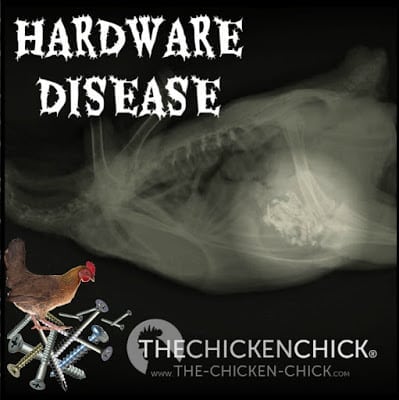

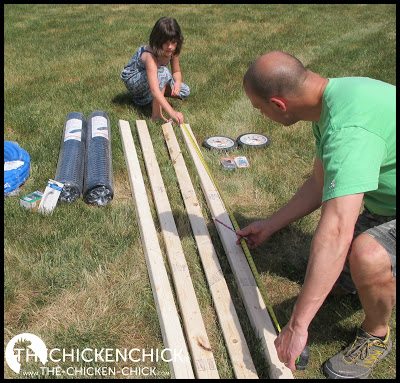
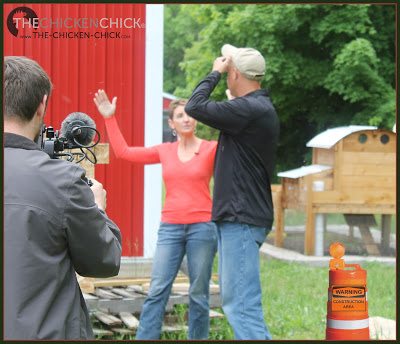
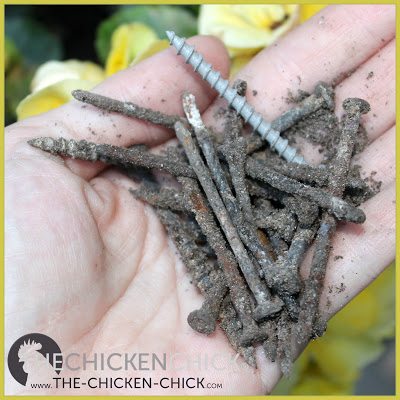

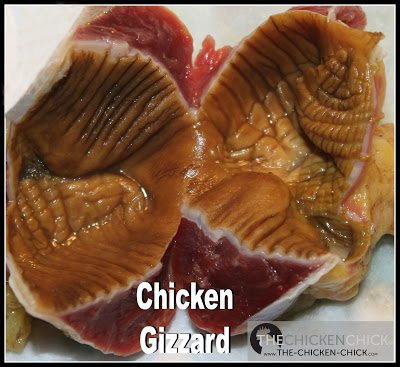
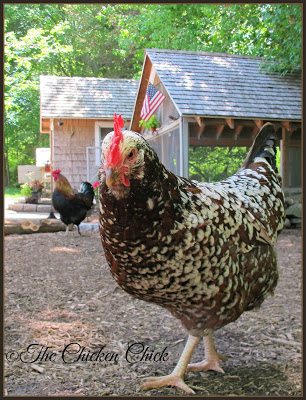


























We are the stewards of all the animals under our care…if an animal is injured most of the time it will be from human mistakes. Learned this when raising my miniature horses and chickens.
I never really thought of this. We have had hens just stop eating and drinking before and started loosing weight and then just die. I never thought maybe they ate something that may have killed them Maybe that’s why we have had a few unknown deaths and they never ever seemed sick! Thank you for this! We had our roof redone a few years ago and he didn’t clean up. We had to and I have to say we didn’t do the best. We are still finding stuff and of course, many years of building things and tearing them down… Read more »
Thanks much for the info!
Great info, I will look around the coops each time I’m out there! TY
I would also like to bring everyone’s attention to the fact that chickens will also come running if they see spilllage of kerosene, gas, antifreeze etc. and they will start pecking at the ground where the spillage is so beware, that could be very dangerous.